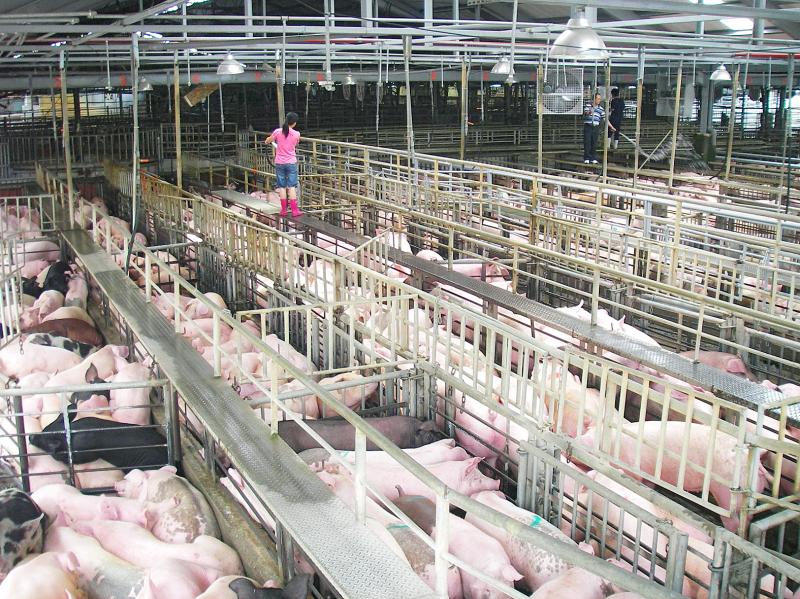Pork industry awaiting OIE decision
Pork industry awaiting OIE decision
LEARNING FROM MISTAKES: The first bid at ending vaccinations in 2009 and getting off the OIE list failed as the foot-and-mouth virus was still present in the environment
-
By Chien Hui-ju and William Hetherington / Staff reporter, with staff writer
Taiwan’s success in eliminating foot-and-mouth disease has been due to respect accorded animal health experts, Council of Agriculture (COA) Minister Chen Chi-chung (陳吉仲) said yesterday, amid speculation that the World Organisation for Animal Health (OIE) is ready to remove the nation from a list of countries free of the disease without vaccination, perhaps as early as today.
Removal from the OIE’s list means that Taiwan would be able to export fresh pork products once again.
Taiwan had been free of foot-and-mouth disease for more than 68 years before an outbreak of the disease in March 1997, forcing the culling of millions of pigs and crippling the nation’s pork industry.

Employees spray pigs in the holding pens of a Changhua County farm on March 16. Photo: Yen Hung-chun, Taipei Times
The council first tried ending the use of foot-and-mouth vaccines for pigs in January 2009, but the following month seven cases of the disease were reported, Chen said.
In June 2016, the Executive Yuan established an interdepartmental task force overseen by COA Deputy Minister Huang Chin-cheng (黃金城) to tackle the disease, Chen said, adding that the task force succeeded because it took advice from animal health experts and acted upon it.
It tried again on July 1, 2018, to end the vaccination program, acting on the experts’ advice, and that turned out to be the correct choice, he said.
The 2009 attempt failed as the virus was still present in the environment, so the council made sure farms were thoroughly disinfected and monitored before ending vaccinations the second time, he said.
The council also encouraged pig farmers to vaccinate all of their livestock to eliminate carriers, and then tested sentinel pigs at each farm to ensure no trace of the virus remained, he said.
A sentinel animal is one that is deliberately placed in an environment to detect the presence of an infectious agent.
The council then designated one slaughterhouse each for the north, east, south and west of Taiwan proper to slaughter all of the pigs for that area, Huang said.
The sentinel pig from each farm would remain in the slaughterhouse for 18 hours before being retested to ensure they were not infected, he added.
In comparison, the sentinel pigs in 2009 were only isolated for four hours, and were tested only once, Huang said.
In 2018, the council also monitored the pigs’ antibodies to see whether they were created by contact with the virus or because of vaccination, which it had not done on the first attempt, he said.
It was confirmed that the vaccine caused the antibodies that were found, Huang added.
Finally, he maintained good communication with pig farmers to ensure that they cooperated with the council’s measures, he said.
Some farmers were initially not convinced it was safe to end vaccinations a second time, but eventually they came around when they realized the government’s resolve, Huang said.
via Taipei News
